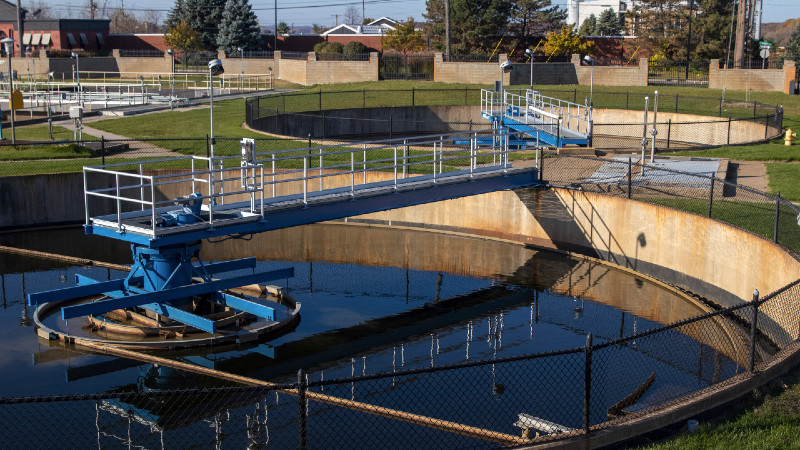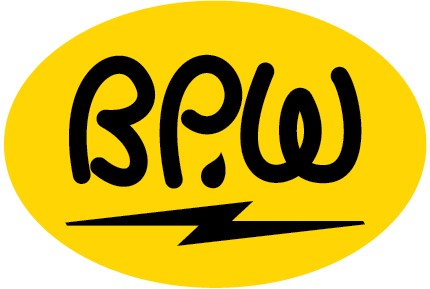The Pollution Control Department is a division of the Holland Area Water Reclamation Facility.
Purpose
-
Regulate the disposal of industrial wastewater into the sanitary sewer collection system
-
Protect the physical structures and safety of operation and maintenance personnel of the wastewater system
-
Protect the health and safety of the public and our environment
-
Comply with pretreatment regulations as required under the Federal General Pretreatment Regulations and Categorical Standards and local source control ordinances

Information Packets
Reporting Forms
Description of Fees and Requirements
Surcharge Fee
Surcharge Fees are charged to industrial users whose compatible pollutant strength is above the limits set forth in the sewer use ordinance. This is charged to offset the additional operational and capital costs for the higher strength waste. Revenue collected from the surcharge fee offsets cost of wastewater treatment expenses at the Holland Area Water Reclamation Facility.
Special Discharge Allocation Fee
This fee is only charge to industrial users who have applied to discharge compatible pollutants in excess of established surcharge limits. This fee is comprised of two components. The first is the treatment charge and the second is the capacity charge. Money collected from the special discharge allocation fee is applied to the cost of wastewater treatment at the Holland Area Water Reclamation Facility.
Sampling and Analysis Fee
This fee is collected from users who use the services of the Holland Area Water Reclamation Facility laboratory. This fee is collected through the surcharge bill and is used to fund the Pollution Control Department.
Fines
These are charges for violations of ordinance or permit requirements. Revenue collected above legal and court expenses offsets Pollution Control expenses.
Industrial Surveillance Fee
The industrial surveillance fee is collected either through the surcharge bill for northside customers or the surcharge bill for southside customers. Revenue collected offsets Pollution control expenses.
Municipal Civil Infractions
Municipal Civil Infractions are fines collected for a violation of a permit or ordinance requirement. A ticket is written to the offending industry and a fine is paid at the appropriate court.
Industrial User Requirements
-
One person from each industry should be delegated the authority to be responsible for nondomestic wastewater discharged to the municipal sewers. He would be involved with maintaining the pretreatment facility operations and assuring a continual high level of performance. In case no pretreatment is provided, he would be involved with prevention of accidental discharges of process wastes to the sanitary sewer system. He must become aware of all potential and routine toxic wastes generated by his industry. He must be informed of all process alterations which could in any manner: increase or decrease normal daily flow or waste strength discharged to the sanitary sewer.
-
This industrial representative must catalog all chemicals stored, used, or manufactured by his industry. Such a listing should include specific chemical names - not manufacturers codes. Those wastes discharged to the sanitary sewer are a prime concern; however, all discharge should be cataloged. An estimate of daily average flows and strengths must be made including process cooling, sanitary, etc. Such a determination should separate the flows according to appropriate categories. The aforementioned flow and chemical listing is to be sent to the Control Authority and must be treated as confidential information.
-
The industrial representative should attempt to determine whether or not large process alterations will occur during the next few years; one year, two years, five years. He should consult with management to determine if such alterations are scheduled and forthcoming and notify the Control Authority of any change.
-
A sketch of the plant building(s) must be made, including a diagram of process and chemical storage areas. Location of any pretreatment equipment should be indicated and floor drains located near process and storage areas should be noted. Manhole and sewer locations at the industry's point of discharge into the municipal collection system should be included on the plant layout sketch.
-
There must be separation of spent concentrates from the sanitary sewer to prevent toxic wastes from upsetting the municipal biological treatment plant. Supervision and operation of the pretreatment equipment for spent concentrates as well as all toxic wastes and high strength organic wastes to an acceptable level as detailed in the POTW's Wastewater Control Ordinances is the responsibility of
-
the industrial representative. All sludges generated by such treatment must be handled in an acceptable manner, such as in designated areas of a sanitary landfill or by a licensed waste hauler. Adequate segregation of those waters and wastes to be pretreated to meet discharge limits is a vital portion of the industrial effort to prevent operational problems at the Water Reclamation Facility.
-
Throughout the industry adequate secondary containment or curbing must be provided to protect all floor drains from accidental spills and discharges to the receiving sewers. Such curbing should be sufficient to hold 150% of the total process area tank volume unless a lesser volume can be shown to provide adequate containment. All floor drains found within the containment area must be plugged and sealed. Spill troughs or sumps within process areas must discharge to appropriate pretreatment tanks. Secondary containment should be provided for storage tanks which may be serviced by commercial haulers and for chemical storage areas.
-
An adequate sampling vault or manhole must be provided in an accessible place for municipal treatment plant personnel to obtain samples and flow measurement data. The complexity of the vault will vary with the sampling requirements the Control Authority determines necessary to protect the treatment plant and the receiving stream. Should the Control Authority desire continual flow recording and long duration, 24 hour composite sampling, then a more complex manhole would be mandatory, complete with 110 volt AC. Samples collected could be divided between the industry and Control Authority for analysis if so desired by the industry. The sampling vault should be located so as to give access by Control Authority personnel without entering the industrial property. The industry shall bear all costs of sampling vault and equipment needed.
-
Industries in need of outside consulting services for sampling/ analysis can contact the Control Authority for information on possible sources of assistance.

